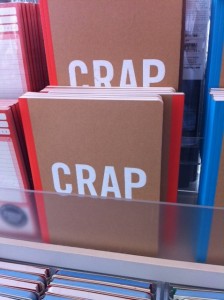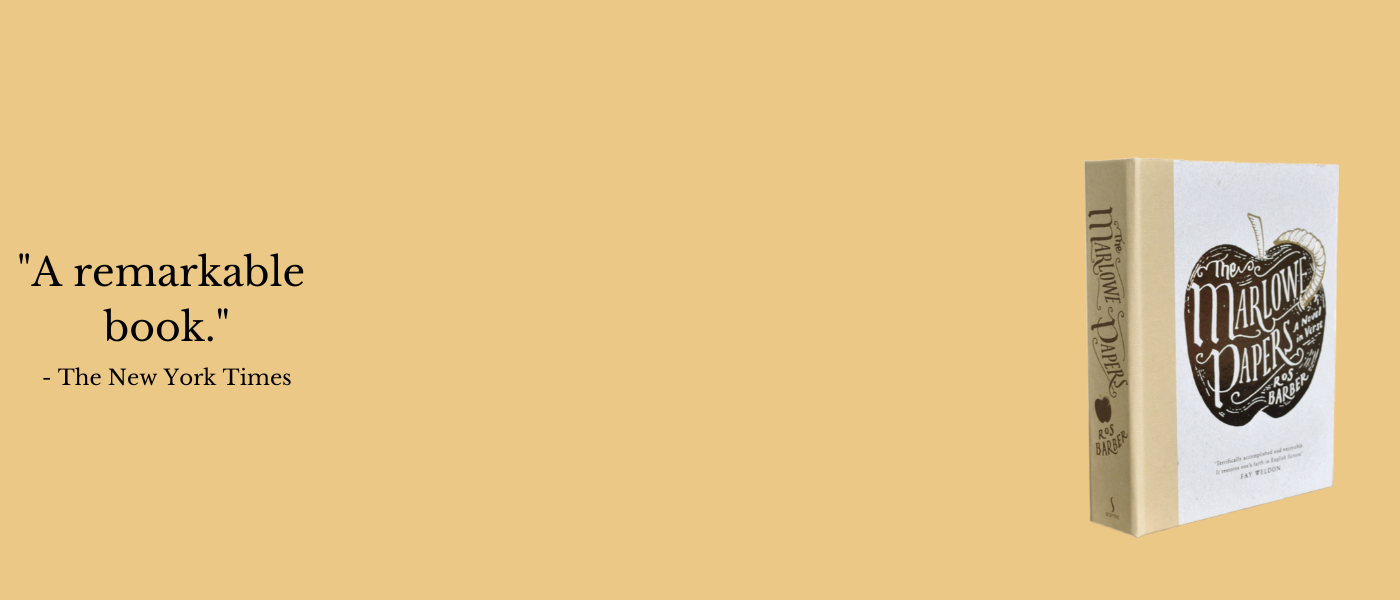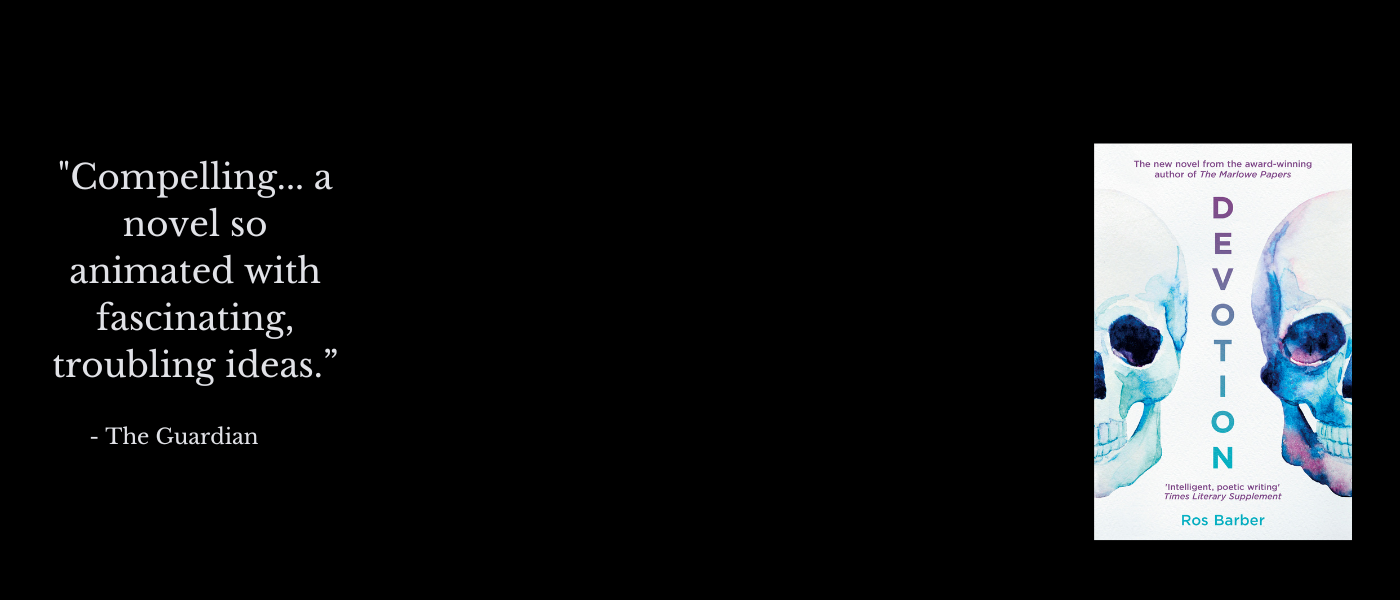 If you’ve been to the British Library recently, you’ll notice there are new words on the walls in the cafe and restaurant. These words are the result of the ‘Writing London’ project. They were produced by young people aged 18-21 supported by the Foyer Foundation, who worked with a writer, artist and photographer to respond to their environment. The project was funded by the Paul Hamlyn Foundation. Nothing I’m about to write is intended as a criticism of the young people or the poet involved. I completely understand the well-meaning intentions of public art projects of this sort, having been involved in similar projects myself over the years. It is a Good Thing to engage young people in a creative process and to help them feel more empowered in their own expression. Everyone has to start somewhere. However, I can’t agree with the increased tendency of such projects to plaster the words of absolute beginners onto public spaces.
If you’ve been to the British Library recently, you’ll notice there are new words on the walls in the cafe and restaurant. These words are the result of the ‘Writing London’ project. They were produced by young people aged 18-21 supported by the Foyer Foundation, who worked with a writer, artist and photographer to respond to their environment. The project was funded by the Paul Hamlyn Foundation. Nothing I’m about to write is intended as a criticism of the young people or the poet involved. I completely understand the well-meaning intentions of public art projects of this sort, having been involved in similar projects myself over the years. It is a Good Thing to engage young people in a creative process and to help them feel more empowered in their own expression. Everyone has to start somewhere. However, I can’t agree with the increased tendency of such projects to plaster the words of absolute beginners onto public spaces.
No-one dares speak up about this. We live in an age where competitive sports are avoided in primary schools, where everyone gets a certificate for taking part but no-one comes first, where We Are All Winners. But if the very first thing one ever writes is deemed good enough to adorn the public spaces of the British Library, why bother ever writing anything else? You have achieved a writing pinnacle. You’ve proved to yourself is that this writing thing is piss-easy; so easy that it has no value.
Let me give you some examples of the phrases that filled my heart with despair. This runs along the wall of the cafe:
Mechanical engines roar
There are lots of narrow, small back-roads…
students hanging around
outside the buildings smoking
The camera is merely a witness
not intervention or protection
Take me away from here please
I need a change of life
We all want freedom
These are first thoughts. Notebook etchings. You come along, as a teacher, and you say, ” ‘mechanical engines’? Aren’t all engines mechanical? Is there a word you can lose? The same with’small, narrow’. That looks like unnecessary repetition. ‘Students hanging around’… I like that, but can you find more interesting words? Can you make us see it in our mind’s eye? What do they look like? Can you compare them to something else? Come up with a simile? Same with the smoke. Now, this camera, the idea of it being a witness, I like that, but can you go further, explore it a bit more? Try making the camera a person – hey, maybe you could try writing this from the camera’s point of a view? You want to try that for a bit? Imagine *being* the camera, this witness that can’t, or doesn’t intervene or protect. Write a paragraph, just jot all your ideas down in a free-flowing way, then just keep the phrases and ideas you like the best. This final idea, ‘we all want freedom’, it’s true of course, but rather than just stating it, which is a bit boring, can you find a way of making us *feel* that yearning for freedom? How do *you* experience that feeling? What represents freedom to you?”
I’m not saying it’s easy getting quality words out of people who aren’t used to creative writing (and often, no kind of writing at all). Especially when their chief concern is that their basic human needs aren’t being met (somewhere to live, food to eat, the experience of loving and being loved). But then, if you can’t get them beyond step one, crap writing (which is, after all, where ALL of us start), then LET’S NOT RENDER THE RESULTS PUBLIC. It is frankly depressing. Here’s some more, this time from the restaurant:
The business of everyday life
If I am in a group, I would play my music out loud because I am not selfish. Sharing is caring
Friends close, enemies closer. Possessions to you tight. Think, look, watch. Where are you heading? You might get lost
I want to know, who are the people? Do they understand what they were building?
I look up and see the exoskeleton, the armour built around me.
Again, these are notes for writing, starting points. I like the exoskeleton idea, but it’s completely undeveloped. Now, you might say, it’s unfair to criticise this stuff, it’s written by disadvantaged youngsters. But I counter that someone has thought fit to plaster it over the walls in a place I go to be inspired; to worship words. If we are going to have words impinging upon us in such a place, let them be interesting, well-conceived words; words where a little bit of effort (or at least editing) has been applied.
I’m all for showing what young people are capable of; of giving an insight into their lives and perspectives. But does any of this writing express potential or give insight? Not really. I’ll leave you with the only section that does. To this I say BRAVO, more please; if only the rest of the project had resulted in anything half as good. I notice that in the publicity photos on the project page (where all the young folk involved – YES – are showing off their certificates), this is the only piece of text that is readable. There *are* objective standards for quality writing, even when the writer is a novice… and this piece (barring a grammatical issue in the first line) meets them.
All I see is chicken shops
and liquor shops, so you can
get your stomach full
and your mind empty


I share your feelings about this. Yes, they are disadvnatged youngsters, but plenty of people disadvantaged in one way of another have gone on to write wonderful poems. As you say, no-one STARTS writing wonderfully. And I think it is actually patronizing of the British Library to put up these very rudimentary first drafts, as if to say “We can’t expect anything better from the disadvantaged.” Yes, we can!
I have been to open mike events for adults where similar stuff is read out, often to great applause. If we applaud rubblish, we’ll just get more rubbish. Where is the idea that good writing takes practice, shaping and crafting, really working at it? At an open mike, the standard of the poems offered cannot be guaged in advance, of course, but the same principle applies: someone lauded as a genius for turning out this kind of stuff is being misled.I’ve recently been trying to mentor someone who has (for various reasons nothing to do with the merit of his poems) been the recipient of much praise and backslapping. He needs to improve a lot, but he can’t see it. Gets stuff published, yes, but in magazines run by editors who themselves are poor poets with poor judgement.
Patronising is spot-on, Sheila. And I have had the same problem in the past with a student who could not see any need to improve as a result of a scheme much like this one – a classically disadvantaged young person, she had, indeed, been paid hundreds of pounds for the very first poem she ever wrote. Therefore, as you might imagine, she considered herself something of a genius, when she in fact a talented beginner. What motivation for movement forward when you are given the false impression you have already arrived?